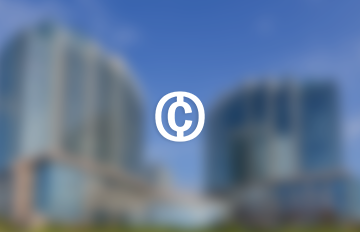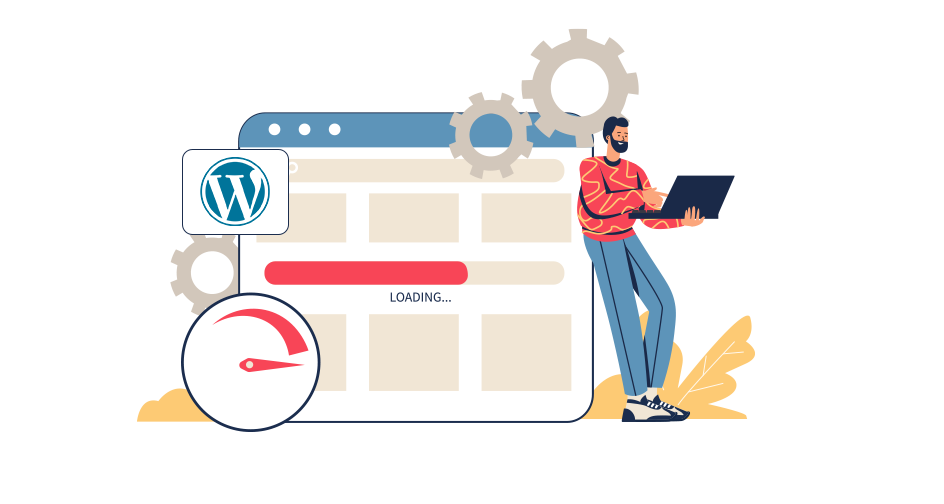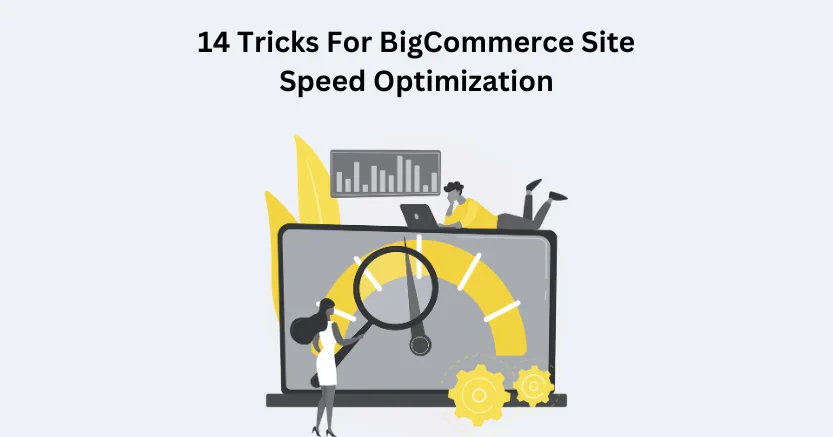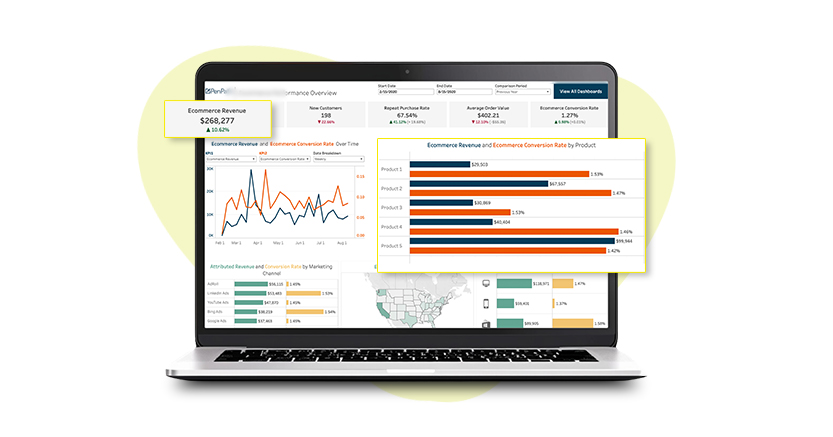TL;DR:Website speed is an important factor that can also boost your Core Web Vital score. Go through this comprehensive guide that will help you speed up WordPress website with some simple strategies and advanced technical strategies suitable for both beginners and developers.
Speed is the backbone of a website, increasing the chances of a website staying ahead in the race. Speed is not only important for enhancing user experience, but also a vital factor that Google considers for search engine results. This makes speed more important than you think.
According to the studies, 53% of mobile users leave the site if it takes longer than 3 seconds to load. Also, speed is the major factor that Google considers for rankings. We’ve compiled some of the best tips on how to speed up your WordPress website in 2025.
In the evolving digital era, the importance and aspects of website speed optimization are also evolving. These are some tried and tested tips that we have used to help one of our customers. These strategies have helped them to speed up their website load time from 6 seconds to 2 seconds.
If you are also wondering why my WordPress site is slow, then you will get the answers and actionable steps in this article. We’ve curated these tips in a way that will be helpful for both beginners and technical experts to make their site faster, boost their user experience, and improve their search engine rankings.
Why Speed Is Important for Your WordPress Site
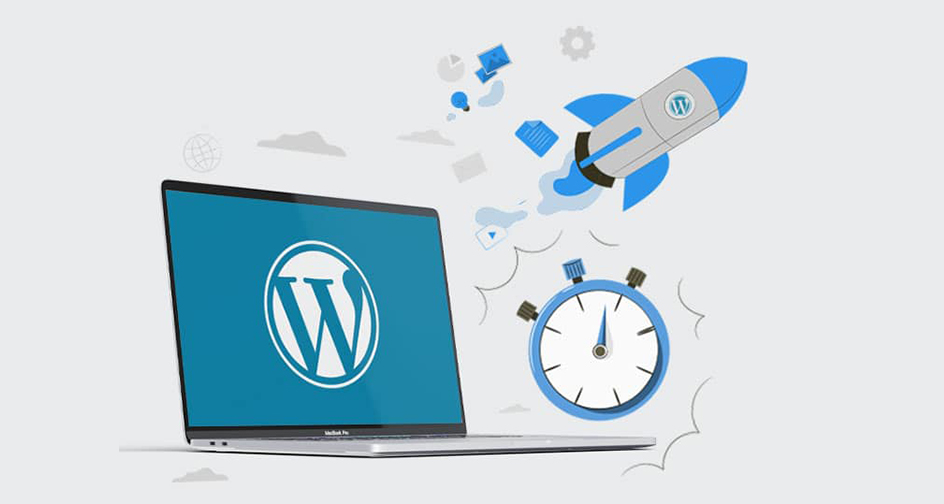
WordPress is a very popular and easy-to-use platform for site building. The people with less technical knowledge are also using it, as it supports the drag-and-drop method. But the problem here is WordPress site speed, which seems difficult to achieve for people without technical knowledge. As a website owner or developer, WordPress speed optimization is an important factor nowadays.
A study shows that human attention span has dropped significantly from 2000 to 2016. It has decreased drastically from 12 seconds to 8 seconds, and today it has reached around 7 seconds. It means increased difficulties for website owners as now they have to show all their meaningful website’s content under 8 seconds or less. If you’re a developer or digital buddy, then you know that 8 seconds is very little time to show useful content on your site while convincing them to stay on your WordPress site. A slow website can potentially hurt your user engagement and conversion rate.
Studies show that even a second of delay in website loading can lead to a loss in conversion by 7%. Also, Google measures a website’s performance on the basis of some particular factors, among which site speed is an important one. In 2025, Google is strongly focused on site speed, user experience and responsiveness of the website for rankings. It has already started pushing websites with slow loading speeds. So, if you need traffic, rankings and revenue from your website, you must speed up your WordPress website. The good news is that we are here with the most effective WordPress speed optimization techniques for both coding experts and beginners at website building.
How to Check Your WordPress Website Speed
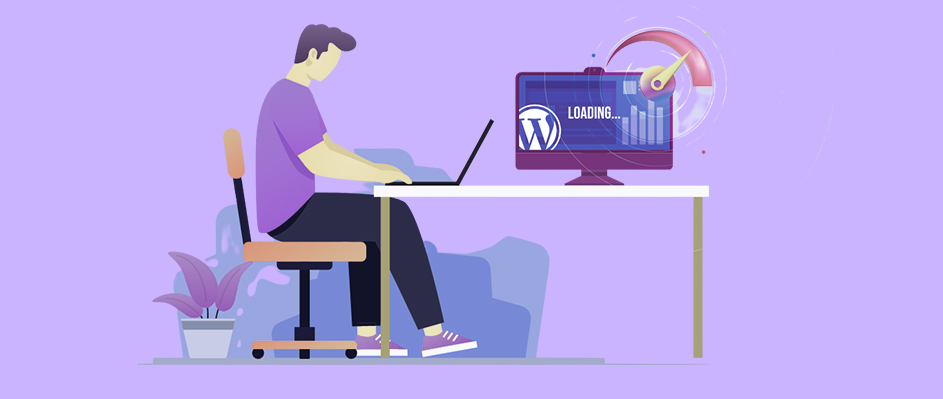
If you are a beginner, you may think that your WordPress website speed is normal just because it is loading fast on your browser. But the scenario is different! Modern browsers like Chrome use a caching feature that stores your website content in cache form and whenever you reopen your website, it fetches the website data from that cache store which makes your website load instantly.
On the other hand, the user experience can be completely different, so don’t confuse these two. Sometimes, the website loads, and the user experience varies in different geographical locations.
In this case, you need to check the actual loading speed of your website. Here are some recommended tools for checking your WordPress Website Speed.
What is Slowing Down your Website?
After getting your speed test report, you have also received some suggestions for improvements in your website. Our tool WebsiteSpeedy not just tests your website speed but also best to fix website speed automatically like a pro. But before that, it is good to learn the possible reasons that may be making your WordPress website slow:
1. Web Hosting Provider
Choosing the right hosting provider is compulsory as they come with many features that optimize your website speed. If your server is not configured properly, then it can also impact your website speed.
2. WordPress Configuration
WordPress provides a caching feature; if the feature is not turned on, it will create overload on your server, making your site load slowly.
3. Unoptimized Web Images
Pages of the website load slowly due to unoptimized or heavy images on the website’s pages.
4. Bad Plugins
Poor code on plugins make websites heavy, increasing your website’s overall loading speed.
5. Third-Party Scripts
External scripts such as ads and external web fonts can also impact your website’s performance, making it significantly heavier to load.
Now, after knowing the reasons, you’re ready to get toward the strategies of how to speed up your WordPress website. Firstly, we’ve curated some easy ways to improve website loading speed that you can use even without coding knowledge.
Ways to Speed Up Your WordPress Website for Beginners
Making changes to your website configuration is difficult for a beginner, especially if you have no coding knowledge. But we’ve some ways for you to improve website loading speed with comfortable and easy no-coding methods.
Firstly, we are providing affordable site speed optimization service with our tool WebsiteSpeedy which can be integrated to various platforms including WordPress to speed up your website in no time. The tool provides various website performance optimization features including caching configuration, image compression, lazy loading, CDN setup, before and after comparison report of website performance and much more. It has helped thousands of customers and WordPress users to improve their website performance. Here are two easy methods which you can apply without the coding knowledge:
Install a WordPress Caching Plugin
WordPress provides various caching plugins that are designed with an easy setup facility. These caching plugins store the files and components of your website, including HTML, CSS and JavaScript files, etc. And when someone visits your site, this plugin serves the cached version of the content to the visitor, preventing the user from waiting for the page to load from the start, every time. Caching plugins store a cached version of your site’s pages, significantly increasing the website’s speed from about 2 to 5 times faster.
In the situation when multiple visitors are visiting your site this caching plugin helps a lot by serving a cached version of the page to every user.
Some recommended best WordPress caching plugins are WP Rocket (premium) or WP Super Cache (free).
Optimize Web Images for boosting site speed
We know that web images are important to make your site’s content valuable and boost user engagement as well. Images make your content attractive and readable for users, but unoptimized images contribute in making your site heavy. It is one of the most common issues causing slow loading website speed in beginner websites. You can’t directly upload images from your camera or phone in their original formats as they are heavy on websites. You can use compression and image optimization tools and photo editing software for the web. JPEG, PNG and WebP are some recommended formats for web images.
Best Ways for WordPress Performance Optimization
After opting for simple methods of image optimization and installing a caching plugin, your site will start loading fast. But if you still feel that you can increase your website loading speed, then here are some of the best tips you can use to make your website faster. These tips do not need so much technical expertise and coding knowledge to follow, but you can implement them simply.
WordPress Performance Optimization Best Practices
After installing a caching plugin and optimizing your images, you’ll notice that your site will start loading a lot faster.
But if you really want to keep your website as fast as possible, then you’ll need to use the best practices listed below.
These tips aren’t too technical, so you don’t need to know any code to implement them. But using them will prevent common problems that will slow down your website.
Keep Your WordPress Site Updated

WordPress is a popular open-source platform that keeps updating and enhancing with time. These updates unlock new features and fix previous issues like security and bugs, from time to time, as it’s a well-maintained platform. WordPress also updates its themes and plugins promptly to help users. As a developer and website builder, you should keep your WordPress site, themes, and plugins updated. Make sure you’re updated to its latest version. Using unupdated versions can make your site load slowly and create distrust in your users. You may not avail the new and advanced features of WordPress and also your site may become vulnerable to security threats if you don’t update regularly. You can also set your WordPress to auto update if you are not able to keep updated.
Keep Background Processes Optimized
Some background activities always go on your WordPress like scheduled post publishing, WordPress backup plugin tasks or tasks by search engines and other crawlers who are trying to fetch content. Background processes like excessive crawling by search engines and backup plugins make your website speed slow. You can fix it by managing backup plugins so that they only work during the low-traffic hours.
You should also keep a check on crawl reports of your WordPress website as crawls can also generate errors in your website that ultimately makes your website load slow or unresponsive.
Use Excerpts on Homepage and Archives
WordPress has a default setting that shows the full content of articles and posts on the homepage and archives of your website. It can slow down the loading speed of homepage, tags and archive pages. So, it’s good to show excerpts instead of whole content.
There is another reason for which you should not show full articles on this page: it makes the user stuck to the home page. Think of this, if your full article is showing on the home page then why will the user visit the actual article? This will reduce your clicks, page views on your site and also users will spend less time on your website. This you can resolve by setting your site to display excerpts, and not the full content. This will help your site load faster and keep your user intact to your site.
You can navigate to Settings » Reading and select ‘Excerpt’ instead of ‘Full text’ next to the setting about what should be shown for each article in a feed. The image below can help you understand this better.

Split Comments into Pages
If your site is working well and your content is engaging with the readers then you will get a lot of comments on your blog posts. It’s a good sign that your content is ranking and reaching more readers. But unfortunately it also has a drawback as loading all the comments can make your site heavy and loading speed slow.
The good news is that WordPress also has a simple setting for this. You can simply go to the ‘settings’ and then ‘discussion’ and click on the option of ‘Break comments into pages’. And you’re done! Now your comments will download in sections preventing the loading of all the comments together, making your site speed slow.
Use a Content Delivery System (CDN)
As we have discussed above, users from different locations experience different website loading times. Similarly, the location of your web hosting server can also impact your website speed at different locations. For example if your web hosting company has its servers in the United States then users of USA and the users of India will experience different site loading times; USA users will see faster loading times.
Content Delivery System (CDN) is a content distribution system that stores cache versions of website data and static files for different geographical users to speed up loading the website for every location.
Implementing a CDN will help you speed up website loading as it delivers those static files and stored data from the nearby location of the user. This can reduce the burden from your web hosting server as your CDN is doing a lot of work for the users of different locations.
Don’t Upload Audio or Video Files Directly to WordPress
WordPress displays your uploaded images and video files on the HTML5 player if you upload them directly. But this is not the right way, especially if you’re concerned about the loading speed of your website. Hosting audios and videos can cost you bandwidth and you may have to pay an overcharge for that by your web hosting company. And the ultimate and worst scenario will be they can shut down your website even if your plan has ‘unlimited’ bandwidth. Hosting large files like this can also make your backup size drastically heavy and you will face difficulties in restoring WordPress from backup.
The solution for this is, you can use other video and audio hosting services like Youtube, Vimeo, SoundCloud etc. These platforms have bandwidth to serve your hard work to your users without occupying your server’s space.
WordPress has a built-in video embed feature, so you can copy and paste your video’s URL directly into your post and it will embed automatically.
Advanced WordPress Speed Optimization Strategies
By implementing the above mentioned tricks you can improve your WordPress site speed significantly. But let me guess, If you are a technical expert and still not satisfied with the speed, looking for more improvements then here are some more and little technical strategies to improve website loading speed. These strategies will make your website speed as fast as possible, because every second of loading speed impacts a lot, so let’s get into these technical know-hows:
Split Long Posts into Pages
Long posts are better for ranking as they have a greater chance to rank in the search engines and readers also love to engage in long posts. But long form post articles with lot of images and content can hurt your website loading speed. You should split these long posts into multiple pages, just like page splitting pages. WordPress provides the in-built option for doing this. You can add a break block in your article from where you have to break the post and want to shift it to another page.
Reduce External HTTP Requests
Most of the WordPress themes and plugins load all kinds of files and components from third-party websites including stylesheets, scripts and images. These files can be from external resources like Google, Facebook etc. You may use few of them but most of these are optimized to load quickly that is even faster than hosting them on your website. If your plugins are making many of these requests then your website load speed can have an impact on that. You may be aware of the fact that HTTP requests are also a factor affecting your website loading speed. You can disable scripts and styles or combine them to reduce these HTTP requests generated by loading files from external resources.
Reduce Database Calls
Poorly coded WordPress themes can make direct database calls or send too many unnecessary requests to the database. And too many requests can significantly slow down your website creating a workload for the server. The problem is that there are a lot of poorly coded WordPress themes that create direct database calls instead of following WordPress standard practices. Another aspect is that sometimes well-coded themes can also make direct calls to the database just to fetch your articles’ or page’s basic information.
You can use a child theme to replace these database direct calls with needed particular information. This is how you can reduce all these database calls and reduce the load speed that they are causing.
Optimize WordPress Database
WordPress stores a lot of information in its database if you are using it for sometime. This is the information that you don’t need anymore. For maintaining an optimal site performance you should keep your database optimized. So, just remove this unnecessary information from your database. In this, WP-Sweep plugin and WP-Optimize plugin can also help you. Using these tools you can clean your no longer needed WordPress database like trashed images, posts or unused tags. These plugins are very helpful in optimizing your database’s structure with just a click.
Wrapping it Up
As a responsible website developer you will do everything you can do to optimize your WordPress site speed as website speed is an important ranking factor for search engines like Google. Thankfully, these tips and strategies will help you significantly in your WordPress speed optimization. Some of these strategies are simple and suitable for beginners too but some need technical expertise. But applying alll these strategies will make a huge difference in your website performance.
If you are too lazy to do this technical job then you can use our easiest tool to optimize website speed. This will not only enhance user experience but also keep your Core Web Vitals in green.













